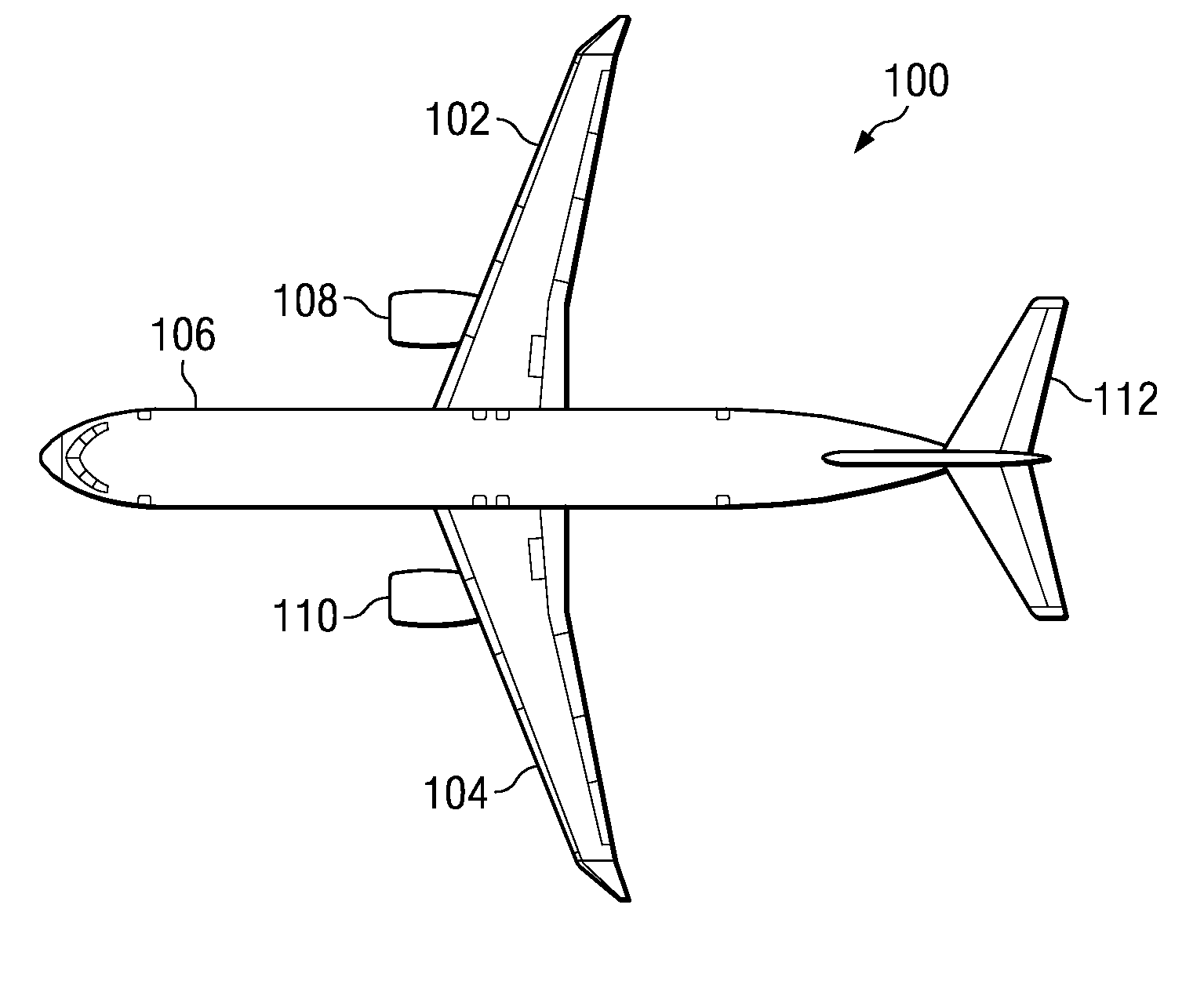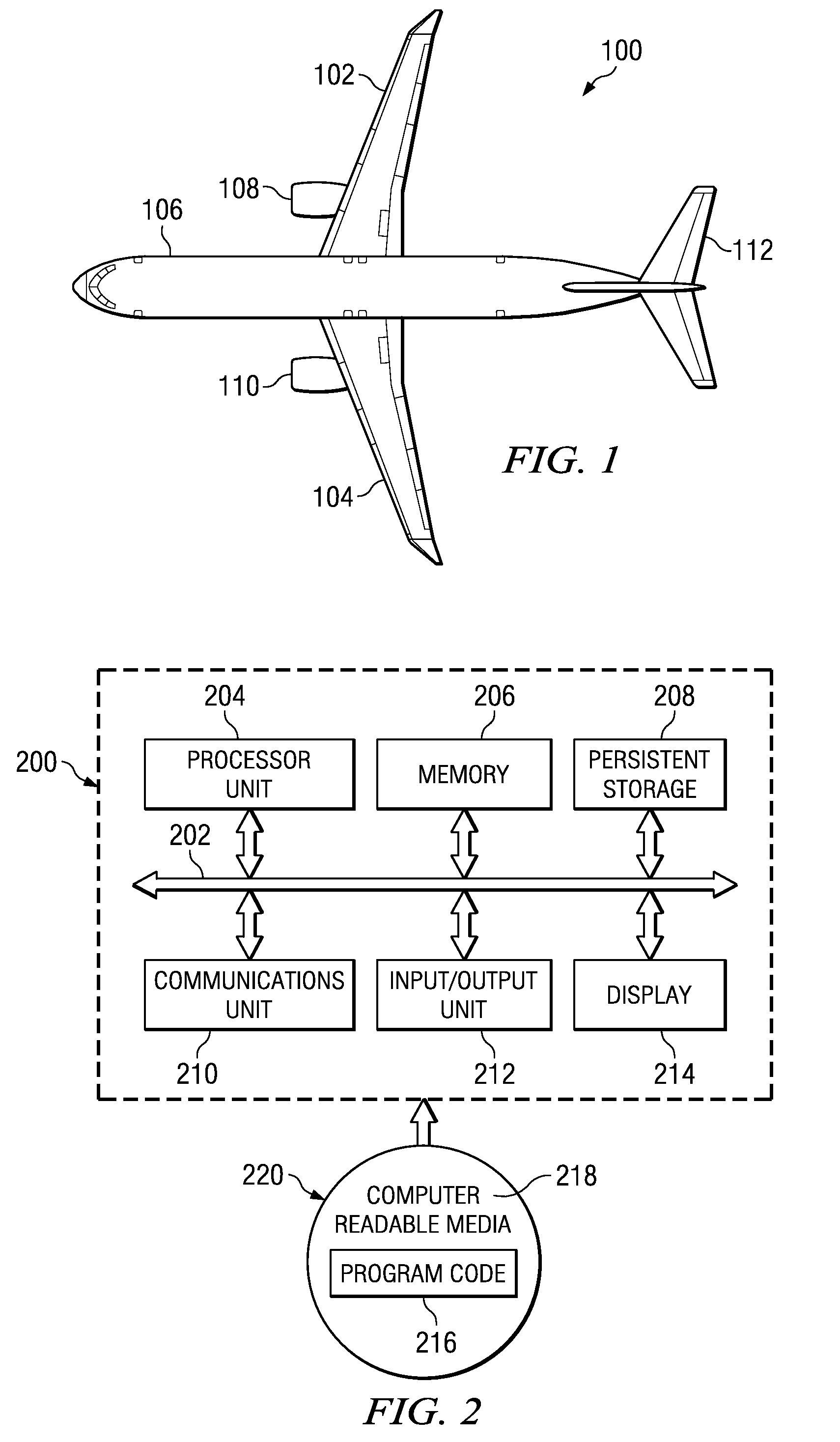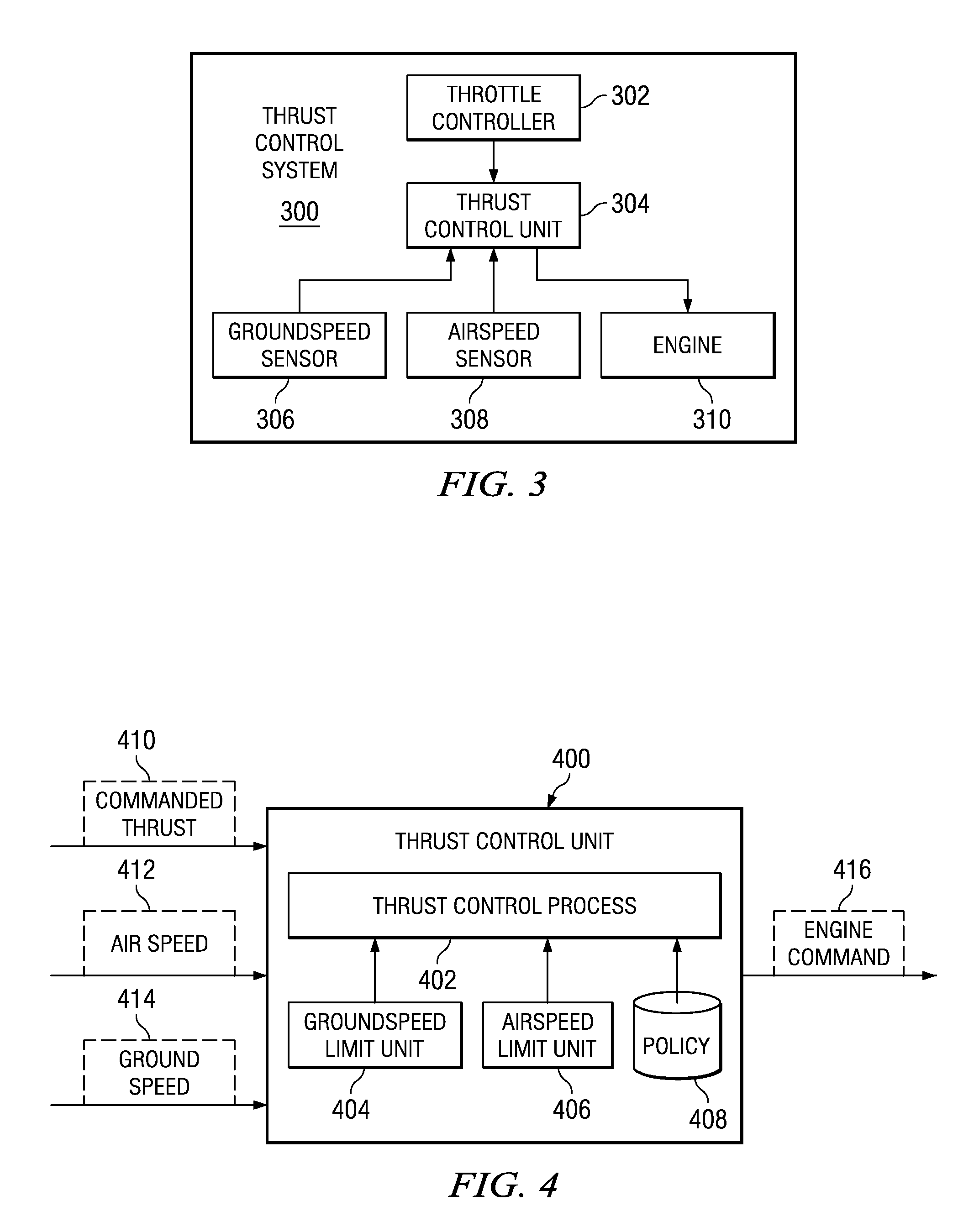Progressive takeoff thrust ramp for an aircraft
a technology of propellers and ramps, applied in the field of aircraft, can solve the problems of vibration of the fan blades, the aerodynamics of the separation of air and the fan blades of the engine, and the affecting the maintenance schedule of the engin
- Summary
- Abstract
- Description
- Claims
- Application Information
AI Technical Summary
Benefits of technology
Problems solved by technology
Method used
Image
Examples
Embodiment Construction
[0027]With reference now to the figures, and in particular, with reference to FIG. 1, a diagram of an aircraft is depicted in which an advantageous embodiment may be implemented. Aircraft 100 is an example of an aircraft in which a method and apparatus for controlling engine power may be implemented. In this illustrative example, aircraft 100 has wings 102 and 104 attached to body 106. Aircraft 100 includes wing mounted engine 108, wing mounted engine 110, and tail 112. In particular, the different advantageous embodiments may control a level of thrust that may be generated by wing mounted engine 108 and wing mounted engine 110 when aircraft 100 is on the ground.
[0028]Although a wing mounted twin engine aircraft is illustrated in FIG. 1, this illustration is provided for purposes of illustrating one type of aircraft in which different advantageous embodiments may be implemented. The different advantageous embodiments may be implemented on other types of aircraft with other numbers o...
PUM
 Login to View More
Login to View More Abstract
Description
Claims
Application Information
 Login to View More
Login to View More - R&D
- Intellectual Property
- Life Sciences
- Materials
- Tech Scout
- Unparalleled Data Quality
- Higher Quality Content
- 60% Fewer Hallucinations
Browse by: Latest US Patents, China's latest patents, Technical Efficacy Thesaurus, Application Domain, Technology Topic, Popular Technical Reports.
© 2025 PatSnap. All rights reserved.Legal|Privacy policy|Modern Slavery Act Transparency Statement|Sitemap|About US| Contact US: help@patsnap.com



